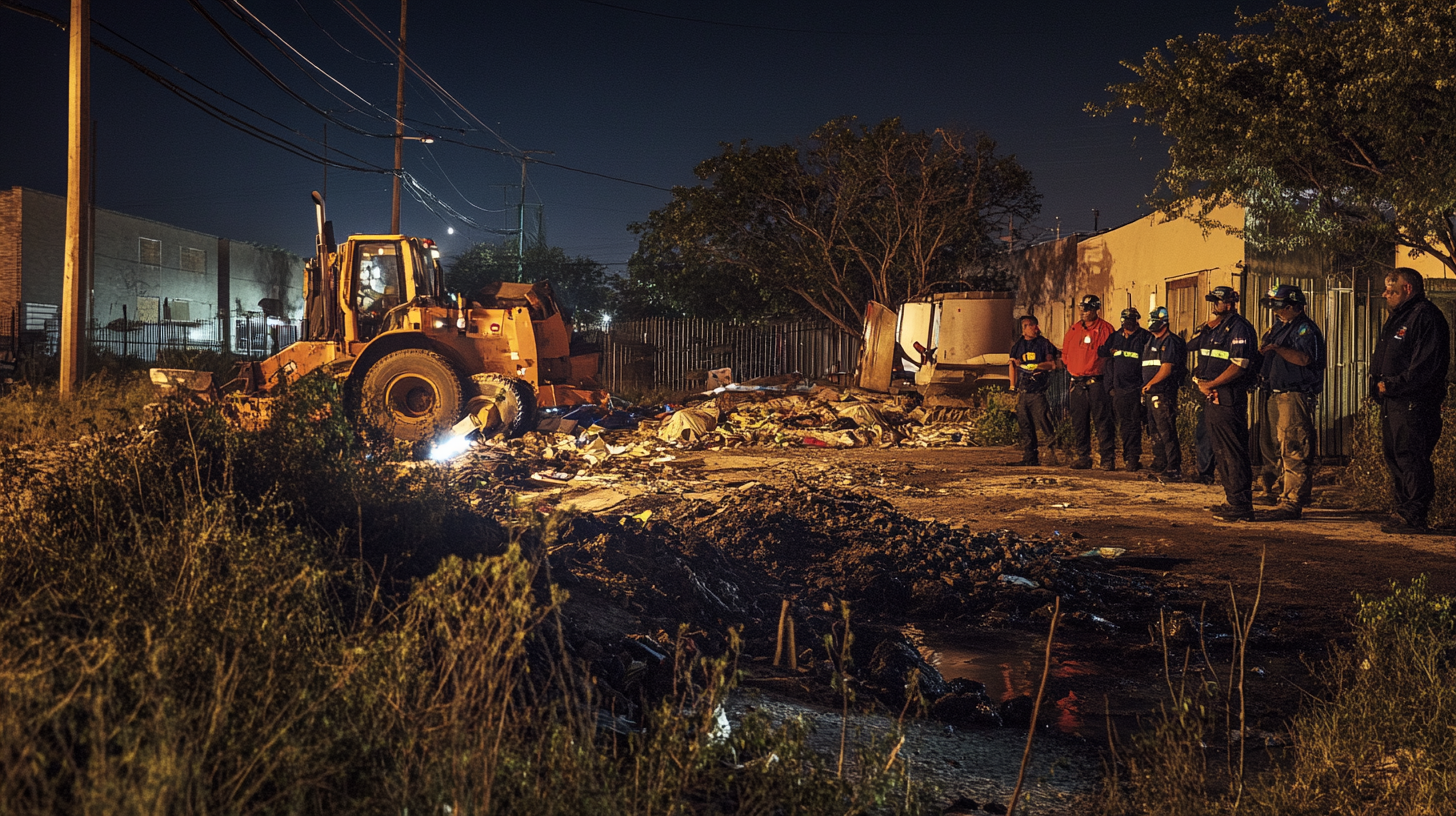Brownsville Man Charged for Illegally Dumping 30,000 Pounds of Debris
In a concerning case of illegal dumping in Brownsville, Texas, Israel Rodriguez has been charged with disposing of approximately 30,000 pounds of construction waste on private property. The materials originated from renovation work conducted at a store within Sunrise Mall. Rather than taking the waste to a landfill, Rodriguez, the owner of Corbelos Demolition Junk Removal Services, improperly deposited it on another person’s land.
Illegal Dumping Charge and Arrest
The incident came to light when the Brownsville Police Department responded to reports of dumped debris on FM 802. Upon investigation, authorities identified Rodriguez as the responsible party and issued a warrant for his arrest. According to Abril Luna, Public Information Officer for the Brownsville Police Department, “A warrant was obtained yesterday for his arrest after it was confirmed that it was his dumping on somebody else’s property.”
Rodriguez subsequently turned himself in to police on Friday morning. He was charged with illegal dumping and was later released on bond.
Local Context and Concerns
Illegal dumping is not a new issue for the Rio Grande Valley (RGV), where the challenge of waste management has often intersected with environmental and property concerns. The unlawful disposal of waste not only impacts private landowners but also affects the wider community, posing environmental hazards, potential health risks, and contributing to urban blight.
Environmentalists have long raised concerns about the implications of illegal dumping, emphasizing its detrimental effects on local ecosystems and public health. Carmen Reyes, a local environmental advocate, explains, “Dumping construction waste, especially on private land, can lead to soil contamination and water pollution. It’s crucial for Valley residents to recognize the importance of responsible waste management for the sake of our environment and community.”
Impact on the Rio Grande Valley
For South Texas communities like Brownsville, incidents of illegal dumping highlight a broader issue facing many Valley residents. Improper waste disposal practices strain public resources and detract from the region’s economic allure, potentially deterring investment and affecting property values.
Mayor Juan Treviño of Brownsville noted, “We need to enforce our environmental laws strictly to safeguard our community and maintain the natural beauty of the Valley. Incidents like these remind us of our responsibility to both the environment and our neighbors.”
The issue of illegal dumping echoes concerns that have been voiced throughout the RGV, prompting local governments to address waste management more robustly. Such measures are aimed at ensuring a clean, safe, and appealing environment for residents and visitors alike.
Previous Incidents and Ongoing Efforts
This case is not isolated, as the Valley has seen similar instances in the past, prompting municipalities to enhance enforcement and outreach efforts. Civic groups often collaborate with local authorities in organizing clean-up drives and educational programs aimed at preventing future occurrences.
Past initiatives have included public awareness campaigns about the proper disposal of waste and the legal repercussions of dumping. Residents have also been encouraged to report illegal dumping activities, which plays a critical role in surveillance and enforcement.
The “Pump Patrol” initiative serves as another community program encouraging citizen participation, albeit in a different realm—monitoring gas prices. Such community-driven efforts demonstrate the power of collective action in addressing local challenges.
Future Steps and Community Resources
Moving forward, local officials and environmentalists argue for stepping up regulatory measures and community awareness to effectively combat illegal dumping. Strengthening partnerships between public agencies, the private sector, and the community offers a potential pathway to sustainable solutions.
For Brownsville residents seeking to dispose of construction debris or any other waste appropriately, resources are available through the city’s sanitation department. Residents can reach out for guidance on legal disposal methods and locations.
In conclusion, while the arrest of Israel Rodriguez sheds light on the illegal dumping problem in the RGV, the incident serves as a reminder of the continued need for vigilance, education, and community involvement in safeguarding the environment. As the region grows, maintaining a commitment to responsible waste management will be integral to preserving the natural and economic well-being of the Rio Grande Valley.







